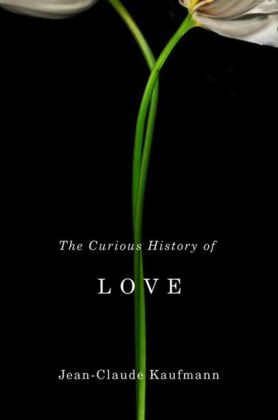Read more
Informationen zum Autor Jean-Claude Kaufmann is Professor of Sociology at University of Paris V Sorbonne. Klappentext The one emotion that matters most to many people is the one about which social thinkers rarely speak - love. For many people, love is the thing that matters most in their lives: they are searching for love, hoping to find in love a kind of happiness that they cannot find in their work or by surrounding themselves with material goods. But where does this peculiar and powerful blending together of love and happiness come from, and why do we find it such a compelling idea today?In this short book Jean-Claude Kaufmann offers a fresh account of the history of a feeling unlike any other. The modern idea of love as passion was born in the 12th century but it was marginalized by the rise of a kind of instrumental, calculating reason that became increasingly central to modern societies. As calculating reason began to encroach on the personal domain, many individuals sought to escape from it, searching for happiness elsewhere. As our societies become dominated by calculating reason and selfish individualism, we search elsewhere for the kind of happy love that will heal all our wounds. This is why we experience so many changes of heart in our personal lives: at times we are coldly calculating and then, a few moments later, we sacrifice ourselves to love without a second thought.Written by one of France's leading sociologists, this highly readable book sheds new light on love and happiness and will resonate with many readers. Zusammenfassung * A best-selling sociologist presents a concise and very readable history of love * Kaufmann focuses on the question of why so many people are searching for love, hoping to find in love a kind of happiness that they cannot find in their work or by surrounding themselves with material goods. Inhaltsverzeichnis Introduction 1. Where Does Love Come From? 2. At The Crossroads 3. Love's Revolutionaries 4. Enter The Happy Couple 5. In Search of Happiness Conclusion A Note on Methodology References ...

